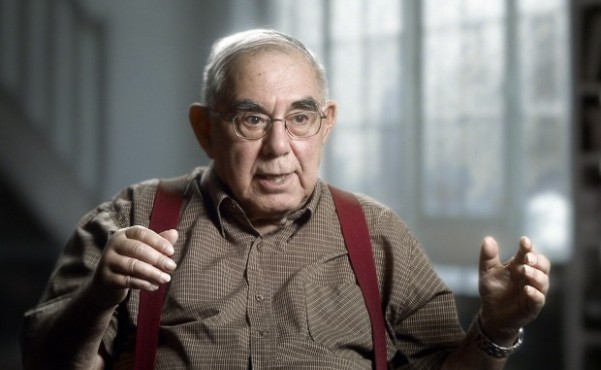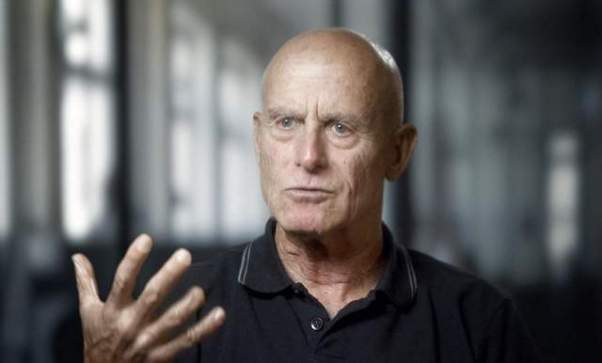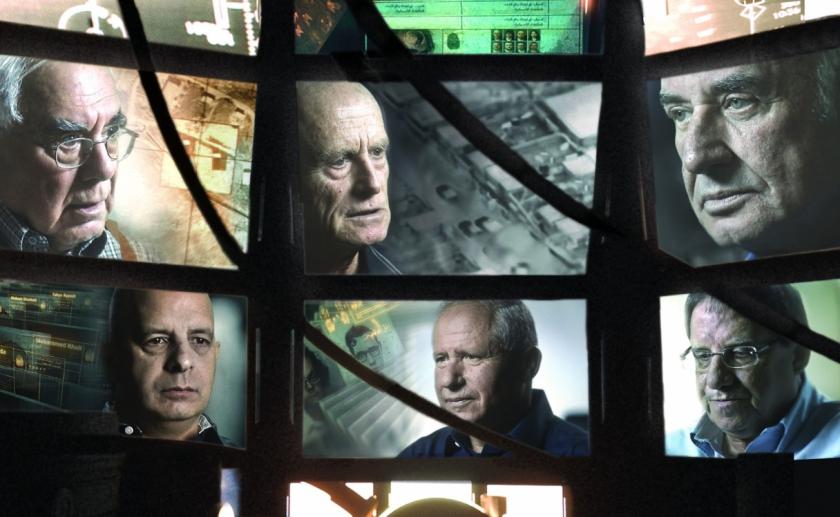Retired spymasters, like retired diplomats, break their career reticence with particular relish, what they've known for so long in inverse proportion to what they can say. Dror Moreh’s remarkable interviews with the last six heads of the Shin Bet, Israel’s internal security service, shed light on strategies and tactics they were required to keep in the shadows in professional life. He focuses on actions among the colonised people of the Occupied Territories since Israel’s victory in 1967’s Six Day War, which made Shin Bet arguably more important than Mossad’s more famed, external spies. But the dutiful, pragmatic intelligence of these six very different men makes them often charismatic and sympathetic witnesses, however you view their acts.
 Avraham Shalom (pictured left) was a paramilitary (or to the British, terrorist) during the Palestine Mandate and helped capture the Nazi fugitive Adolf Eichmann. He was committed to the Israeli nation long before he headed Shin Bet from 1980-86, a period which took in extensive PLO terrorism and Israel’s first invasion of Lebanon. Though his hands shake slightly with age, making him resemble Alec Guinness’s fictional spyhunter George Smiley, his canny toughness is undimmed. Only Moreh’s prodding into his responsibility for the execution of two hijackers, which forced his resignation, makes his head sink from the question, briefly cornered. He refuses to consider morality as a barrier to fighting enemies he considers immoral.
Avraham Shalom (pictured left) was a paramilitary (or to the British, terrorist) during the Palestine Mandate and helped capture the Nazi fugitive Adolf Eichmann. He was committed to the Israeli nation long before he headed Shin Bet from 1980-86, a period which took in extensive PLO terrorism and Israel’s first invasion of Lebanon. Though his hands shake slightly with age, making him resemble Alec Guinness’s fictional spyhunter George Smiley, his canny toughness is undimmed. Only Moreh’s prodding into his responsibility for the execution of two hijackers, which forced his resignation, makes his head sink from the question, briefly cornered. He refuses to consider morality as a barrier to fighting enemies he considers immoral.
Captives dying of “shaken baby syndrome”, torture, assassinations and calculations of acceptable civilian death pockmark the regimes of successors who also inevitably fell from grace, none more completely than Carmi Gillon, boss when Prime Minister Yitzhak Rabin was killed by a Jewish assassin on 4 November 1995. The settler-based Jewish Underground, some pining for apocalyptic provocations of Al-Qaeda extremity, prove an ever-deepening thorn as they gain political influence in a country drifting to the right.
Talking heads are broken up by footage of a middle-aged Palestinian woman busily breaking a rock to throw at Israeli soldiers during the first Intifada, as well as close-ups of civilian victims of Palestinian suicide bombers and the much less innocent, bloodied body of Yahya Ayyash, the result, Gillon has just told us with understandable professional fondness, of an “elegant” op. Infrequent computer dramatisations of incidents just get in the way.
 Being at the sharp end of Israeli policy in Palestine has finally left most of these men with realistic views which cut across political or nationalist agendas, the film’s great strength in a field where propaganda so often dominates. Ami Ayalon, pictured right, the almost parodically rock-hard ex-commando brought in to shake up Shin Bet after Rabin’s death, is angrily outspoken at “ineffective” policies of disproportionate carnage. The ruthless Shalom lives up to his name at the last, observing that the long Occupation has meant his country has “acquired an unfortunate trait. We’ve become cruel – to ourselves as well, but mostly to the people we’re occupying.”
Being at the sharp end of Israeli policy in Palestine has finally left most of these men with realistic views which cut across political or nationalist agendas, the film’s great strength in a field where propaganda so often dominates. Ami Ayalon, pictured right, the almost parodically rock-hard ex-commando brought in to shake up Shin Bet after Rabin’s death, is angrily outspoken at “ineffective” policies of disproportionate carnage. The ruthless Shalom lives up to his name at the last, observing that the long Occupation has meant his country has “acquired an unfortunate trait. We’ve become cruel – to ourselves as well, but mostly to the people we’re occupying.”
The Fog of War was the title of Errol Morris’s inquisition of former US Secretary of Defence Robert McNamara over Vietnam. It was clearly Moreh’s clear model, as he partially penetrates that fog with these frank confessions.















Add comment